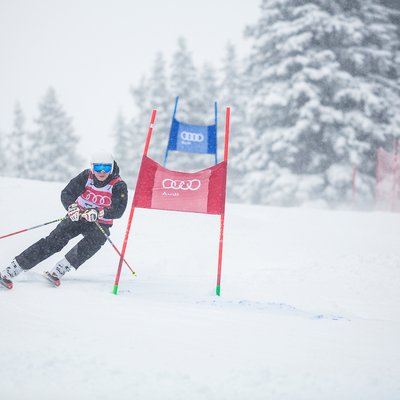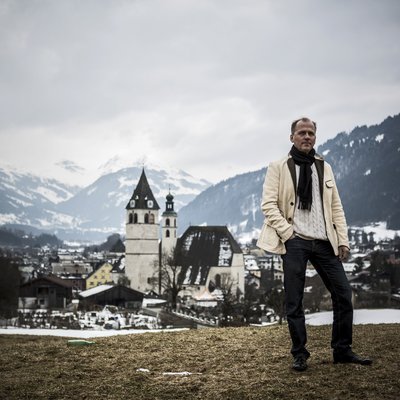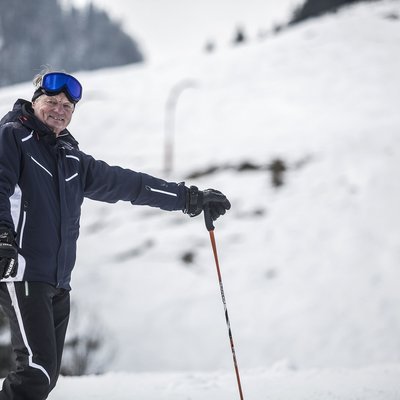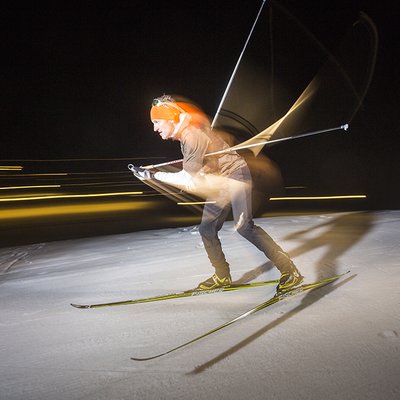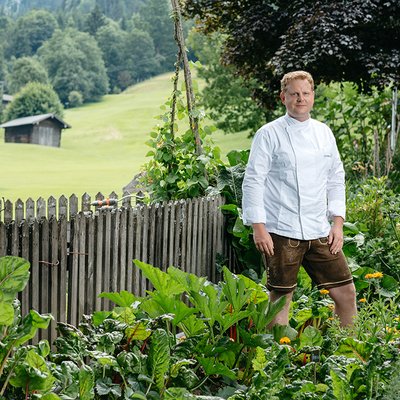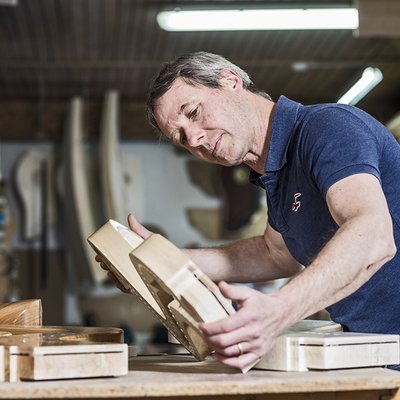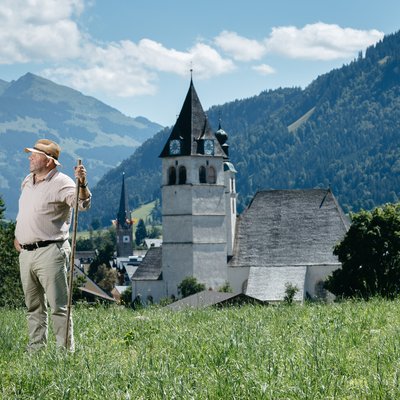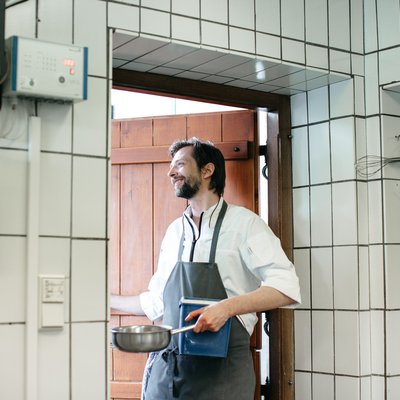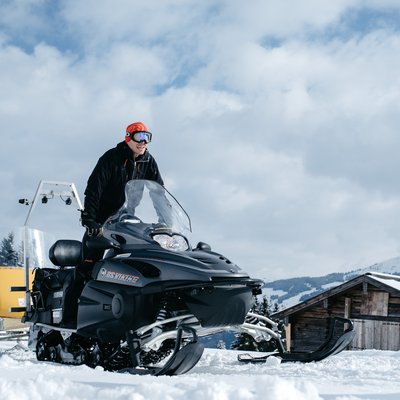„If You Are Successful, It Doesn’T Matter What It Is“
Does a famous skier find it boring to plan houses? And to what extent is a documentary about extreme sport real or scripted? We got the answers from Axel Naglich.
“If all goes well, you’re a hero. If all goes wrong, you’re dead.“ Axel Naglich’s words from the movie “Mount St. Elias“ make your skin crawl. In 2007, the now 45-year-old skier and his friend Peter Ressman were the first to go down the 5498-metre-high Mount St. Elias in Alaska – so far the longest ski run in the world. The documentary about their endeavour has filled cinemas around the globe.
Axel Naglich is one of the most famous alpine skiers in the world. Still, his ambitions were never restricted to sports alone. After receiving his degree in architecture, he founded his own architectural firm in Kitzbühel. In our interview he told us about the real meaning behind extreme sports, about being successful in a “normal” profession and why he doesn’t understand how making loads of money can be the only career goal.

“If all goes well, you’re a hero. If all goes wrong, you’re dead.” How much of this sentence was authentic and how much was scripted?
Well, after I had packed all my stuff and was ready to go, I was sitting in my back yard and all of a sudden I thought: There is a considerable chance I am going to kill myself in this. In fact, that first time we did have to stop our tour because of a storm and could barely be evacuated. We made it down the mountain only at the second attempt. From a dramatic point of view one could say it was a good thing that there was this storm. If you get there in nice weather, go up without any problems and go down just like that – it would probably not make for a very exciting story.
Sports in general, but especially extreme sports are still becoming more and more spectacular and therefore also more dangerous. At the same time, there is also much more criticism.
This might have come with age, but at this point in my life I am more critical about extreme and professional sports. I don’t want to be too critical, because I can understand these ambitions to a certain extent, but not beyond that. I am not a big fan of creating new types of sports that no one can really learn. Let’s take freestyle motocross: No one has special foam pits (note: a foam pad used as landing area to practice jumps) at home to practise their backflips 100 times before they go out. They have to learn it in the dirt. And especially during those first tries there is a big chance your jumps won’t work out. But even if you are able to do it: Let there be three unhappy coincidences at a time and you’re done. I would be asking myself: What for?
Also because you are a father of two children now?
To be honest, it doesn’t only have to do with my family, but also with the fact that it simply doesn’t make any sense to me anymore. I don’t have to prove anything to anyone and I don’t really need to see myself on TV anymore. At some point, it’s enough, it gets boring. I don’t regret anything, but I am really glad I didn’t kill myself. Plus: I do find it a bit embarrassing when athletes miss the right moment to end their careers and think they need to do the same things at 50 that others do at 25. Those are often people who have never done anything else but sports.

You studied architecture and graduated after 19 semesters.
I have to add that it was only six or seven semesters that I studied full-time. Those other years I trained a high school team in the United States, I worked as a coach in Argentina and I participated in 24-hour-races in Aspen five times. At some point during that time we even founded our own event agency. Of course, this didn’t have much to do with my studies. If I had always just concentrated on studying, I would have easily graduated by the age of 25. And our office would probably look very different than it does today. Still, I am happy I did all of that.
Today you are working mainly as an architect. Was it hard for you to change from being an athlete to working in an „ordinary“ job?
We’ve had our company for about 16 years and for a long time, I did those two jobs simultaneously. After all, I didn’t become an architect because I desperately needed a job but because I like what I do. I think if you are successful with something, it doesn’t matter if it’s in extreme sports or as an architect – the feeling is the same.
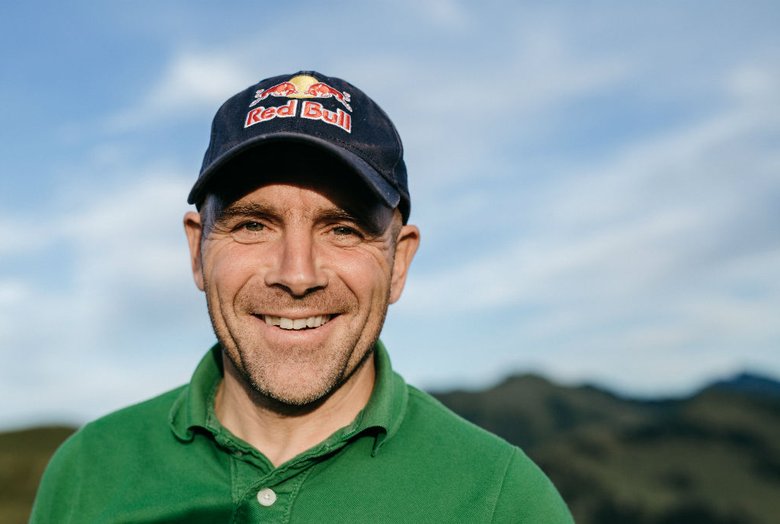
What are the biggest achievements in the life of an architect?
I am always excited to come up with individual solutions. When I work with clients who are open for this, I tell them: “Think outside the box! You are not like me, your house needs to look different.” If you don’t do that, you might be happy about your new home at first, but very soon you will find out that your house looks pretty much the same as your neighbour’s house and isn’t special at all. One of my friends, for example, had a property with a great view on the Wilder Kaiser mountain chain. In order to make the most of this view, we would have had to glaze one side of the roof, but for climatic reasons, we decided not to do this. We then came up with this sort of gear system on the wall: by turning the wheels he can actually open the roof. Now that’s really cool.
For some people being successful means making a lot of money.
If money is so important to you that the only reason you’re working is to have a seven or eight digit account balance, then please, go ahead! But I doubt that this is what really makes people happy. I have a friend who owned a company in Germany with 2,000 employees. All he did was work. He finally decided to sell his firm, started to do sports and learned how to live again. That’s what I have always done, so why torture myself 10 years to reach that point? I would never work 100 hours a week just to make loads of money. To me this just doesn’t make any sense. If it’s a nice winter day, I want to go skiing. And in summer, I want to go biking. If I don’t have time to do nice things then what is it I am working for?
Text: Matthias Köb // friendship.is
Fotos: Ian Ehm // friendship.is
April 22, 2016



